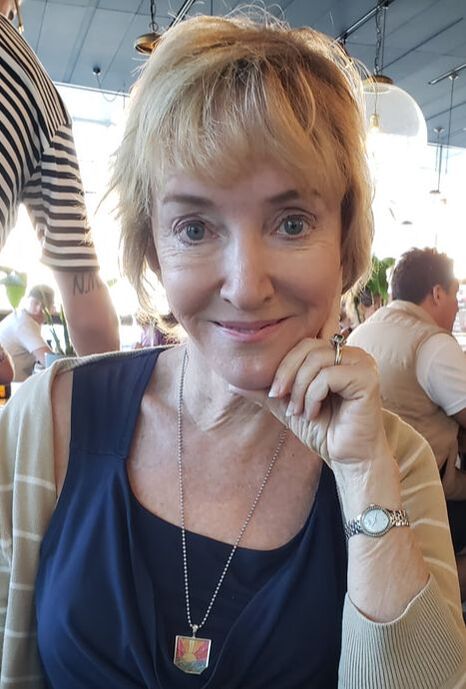|
When I was in high school, Mrs. Ford, my favorite teacher, stopped me in the hall one day. “There’s a great summer job,” she said, “and they asked me for a recommendation. I thought of you at once.”
Because Mrs. Ford taught English, my hopes soared. Editing a book? Writing for a newspaper? I waited for her to explain. “It’s working for Dr. Bennett as a dental hygienist’s assistant. It might even lead to a career as a hygienist yourself.” Ooohh! Putting my hands into stranger’s mouths, smelling their bad breath! Although I had no idea what I wanted to do with my life, I was pretty sure that wasn’t it. “You don’t have to decide right now,” Mrs. Ford said. “Think it over, and talk to your parents. You can tell me tomorrow.” Although I wanted to tell her right then, I agreed to wait. Maybe I wouldn’t even tell my parents. Before I could decide, Mrs. Ford called my mother herself. “That’s a great opportunity,” my mother said to me. “You should definitely go for the interview.” My dad agreed, so I went. My reticence must have shone though my pretense at being interested, so—to my relief—I did not hand the job. Years later I feared the same thing might happen when I interviewed for accounting positions, having chosen that major for two main reasons: (1) I wanted to help put my fiancé through veterinary school, and (2) You could be fairly assured of landing a job after only four years (4.5 in my case, since I’d switched majors) of college. I was not wrong. My reticence did seep through, or I was found otherwise lacking, and several CPA firms rejected me before I landed a job. When I finally put my acting skills, such as they were, to use, I got a job. Nonetheless, I approached my first day with a lot of nervous fear of failure. I liked my colleagues though, and they soon taught me what I needed to survive. Often, after someone on a plane asked what I did for a living, they’d remark, “Oh, I hate math,” or “Oh, I’m terrible at math,” or “I’m no good with numbers.” My usual reply was “Me too,” or “Same here.” This always served to draw inquisitive looks. If I happened to be in the mood for conversation, it worked as an ice breaker. “Accounting really isn’t so much about numbers,” I’d say. “It’s about people.” “How so?” “Your clients need help getting their business off the ground, or getting out of the red (loss) zone and into the black. The numbers are just one of the tools to help get them there. And you meet a lot of nice people, and some really needy ones too.” My mood would darken when I remembered one client in particular. He and his brother had inherited their business from their dad. Every month my firm would generate a P and L (profit and loss) statement for them. “If it’s bad news,” he’d say, “I’m going to relocate to a Caribbean island.” On bad days, he’d say worse. I heard, a few years, after I left the firm, that he shot himself. I wish he’d gone to an island. Thankfully, there were more success stories than failures at our firm. When I did tax returns for clients making ten times my income, they’d whine, “I can’t believe what you’re telling me I owe. Are you sure you can’t find a few more deductions?” I’d vow silently, If I’m ever in a position to make that kind of money, I must remember not to whine about taxes. I would sympathize with the client, employing my acting skills once more to hide my lack of real sympathy. “I’ll try.” Occasionally, I’d find a client who, though losing money this year, was able to get a nice refund by carrying the loss back a few years. This put a smile on both our faces. “What do you do for a living?” I’d ask the stranger on the airplane, and we’d launch into a discussion. Odds were that I’d know a bit about their industry, having encountered such a variety as an accountant.
0 Comments
Leave a Reply. |
Archives
June 2024
Categories |







 RSS Feed
RSS Feed